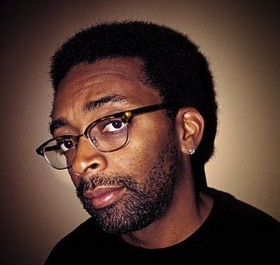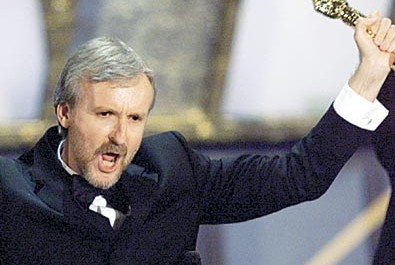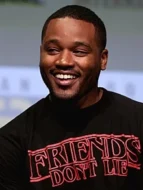Send Features To: directorschairlamb@gmail.com
Deadline: 9th March 2019
Hello everyone, it’s time to announce the director that I’ll be featuring for this months Director’s Chair and, seeing how he has just received his first Oscar nomination for Best Director, I thought now would be a perfect time to highlight the work of Spike Lee.
Now something I think I should make clear is that there are people who are a lot more experienced and have more cultural knowledge to talk about Spike Lee than me. This piece will be focused on a quick look through his career, I am not qualified enough to go fully into detail about the impact and legacy of Spike Lee’s films, there are better pieces that can talk about that.
So going into Lee’s films, he started off his film career making the first student film to be showcased at Lincoln Centre’s New Directors/New Films feature with Joe’s Bed-Stuy Barbershop: We Cut Heads. Following that, Lee worked on his first feature film, She’s Gotta Have It with a budget of $175,000 and shot in two weeks. When it was released, it ended up grossing over $7 million, helping to put Lee on the map. He followed it up with the film that really cemented Lee as a cinematic force: Do The Right Thing. This was a blistering, powerful look at race relations and created a powerful world for the film, with it playing in competition at the Cannes Film Festival and being nominated for Best Original Screenplay at the Oscars. However, many believed it should have been nominated for Best Picture and it’s now a standing joke about the Oscars that Driving Miss Daisy won Best Picture whilst Do The Right Thing wasn’t nominated.
After a few other films, and generating controversy with Mo’ Better Blues over accusations of antisemitism, Lee went onto a biopic of Malcolm X. Now that film was in development for decades, with work on it taking place on and off since 1967, with James Baldwin being hired to write the script at one point. Originally, when the film finally got greenlit, Norman Jewison was going to direct but following a backlash over a white director making a film about Malcolm X, with Lee being one of the main voices of criticism, Jewison left and Lee took over, with Lee making substantial changes to the script. Even when it was being filmed there were issues over the budget, with a number of prominent Black celebrities at the time donating money to have the film made the way Spike Lee wanted it to be made, including having the film be close to 3 1/2 hours long, when the studio and bond company wanted it to be no longer than 2 hours 15 minutes. The film ended up making some history through both a cameo appearance by Nelson Mandela at the end, and being the first American film to be allowed to film at Mecca, with the film being a critical success and getting Denzel Washington a nomination for Best Actor, which I think he should have won.
After a few other films, Lee made his first cinema released documentary, 4 Little Girls, focusing on the 16th Street Baptist Church Bombing. Originally the film was intended to be released on HBO, but after it was completed, it was decided that it was important enough to have a cinema release, with it ending up being nominated for Best Documentary at the Oscars.
In the 2000s meanwhile, Lee became one of the first mainstream directors to address 9/11 in his films with 25th Hour. The film was in pre-production when 9/11 happened and, rather than ignore it, Lee made sure to integrate it into the story, with the result being called one of the most important films to deal with 9/11. Alongside this, a monologue delivered by Edward Norton ranting about New York has become one of the most highly regarded rant scenes in modern cinema, which is impressive considering that the studio wanted it cut, with Lee fighting to keep it in.
Lee has also been involved in more commercial films, directing the heist film Inside Man in 2006, which is currently Lee’s highest grossing film. Lee also ended up directing a remake of Oldboy, after a version Will Smith wanted to do with Steven Spielberg fell through. However, the post production on Oldboy was a disaster for Lee, with the producers heavily re-editing the film, against the wishes of Lee and star Josh Brolin, to the point where Oldboy became the only film Lee made to not be credited as A Spike Lee Joint. Lee has also been involved with using Kickstarter to fund films, with his film Da Sweet Blood of Jesus being funded via Kickstarter.
This brings us to BlacKkKlansman, which was another commercial and critical hit for Lee. After being convinced to direct the film by Jordan Peele after he heard the pitch “black man infiltrates Ku Klux Klan,” Lee crafted an excellent film which firmly establishes how the legacy of the KKK is alive and well in Trump’s America. Whilst filming, Lee also showed a great level of respect to the legendary Harry Belafonte, insisting that the crew wear suits as a mark of respect for him. The success of BlacKkKlansman has led to Lee finally being nominated for Best Director at the Oscars, a nomination he should have had at least twice already.
Now as a reminder, the films of Spike Lee are listed below and I’m looking for any reviews, podcasts, features, whatever you have on his films.
- She’s Gotta Have It
- School Daze
- Do The Right Thing
- Mo’ Better Blues
- Jungle Fever
- Malcolm X
- Crooklyn
- Clockers
- Girl 6
- Get on the Bus
- 4 Little Girls
- He Got Game
- Summer of Sam
- The Original Kings of Comedy
- Bamboozled
- 25th Hour
- She Hate Me
- Inside Man
- Miracle at St Anna
- Red Hook Summer
- Bad 25
- Oldboy
- Da Sweet Blood of Jesus
- Chi-Raq
- Michael Jackson’s Journey from Motown to Off the Wall
- BlacKkKlansman
I look forward to reading whatever you send me.





One thought on “Director’s Chair Introduction: Spike Lee”